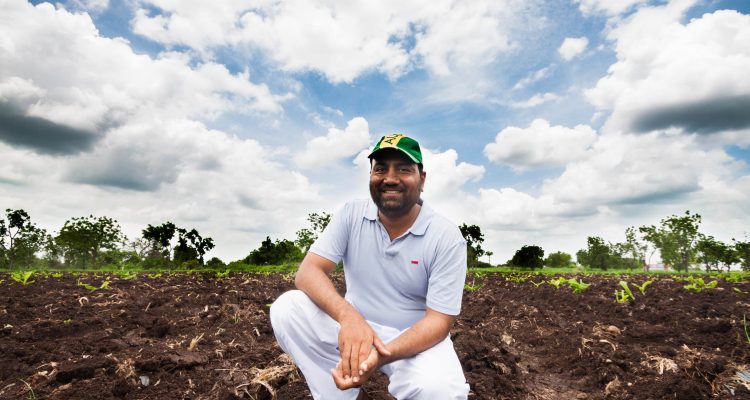Satyajit Hange of Two Brothers Organic Farms relates his experiences and observations of the evolving Indian organic industry during the Coronavirus phase.
◊ By Satyajit Hange
Note: To find organic brands, organic shops and organic product suppliers in India, buy the Organic Directory
The demand for Organic food has been steadily on the rise and it won’t slow down any time soon. We must embrace this wave of change and work out ways to make sure we are able to meet supply demands while making consumers more aware along the way.
HOW FARMERS CAN AVOID FOOD WASTAGE
A bridge between Organic fresh produce suppliers and the consumer has to be built rapidly. There were many farmers who had to bear the brunt of the nationwide lockdown when it was implemented – good food was rotting away in many far-flung corners of our country as they couldn’t be transported to consumers who needed this produce.
Organic produce, by virtue of being chemical-free, has low shelf life. Hence, it is essential to provide information on food processing to farmers so that surplus food can be naturally processed into a healthy product.
This product can go on store shelves and withstand spoilage for longer durations once processed.
The other solution would be to connect farmers to hospitals, restaurants, the hotel industry, etc, for bulk sales.
Efficient and cheap storage of organic fresh produce is another area that can be explored, as there is a legitimate need for this.
BEWARE THE ‘ORGANIC’ IMPOSTORS
We have also seen a rise in wolves disguised as lambs.
Yes. Some companies are seen passing off non organic products as organic products.
Legislation, inspection, strict but easier forms of certification should be put in place to curb such practices.
Not every farmer that produces organically can afford the time, money or energy to get certification from a reputed certifying body. They should be given access to legitimate but easier and more affordable options.
ONLINE SHOPPING IS NOW A NECESSITY
Some of the challenges we have faced ourselves include: Inability to deliver our products in a timely manner. Since online shopping is a necessity, there is a huge opportunity for shipping companies to step up, employ more workers and come up with smarter ways to ensure delivery of products in a timely fashion.
When most shopping is taking place online, the other concern is reducing packaging waste, the need for reusable packaging that is eco friendly and economical is also huge and there is a wide gap that needs to be filled quickly.
INDIA AS AN ORGANIC HUB FOR THE WORLD
This is also a good time for India, to look at becoming a global supplier of organic products. Demand of organic products is on the rise globally and India, with the maximum number of organic producers in the world, makes for an ideal organic hub.
NO. OF ORGANIC FARMERS IN INDIA WILL CONTINUE TO GROW
We have received many requests and, mostly, from educated citizens looking to make a living as organic farmers. With proper education of farmers, much needed handholding from the government, and support from banks and investors, this can be achieved.
This will open up a whole new market where not only our environment stands to benefit, but also the living conditions of many would be elevated as this will generate employment, especially in rural India.
Education on growing food naturally will have to start at schools; it should be made a mandatory part of the learning curriculum. This is an important aspect that we have left out from education. We say that students are the pillar of the future, then why not teach them how to grow food?
EMBRACE DIGITISATION IN FARMING FOR EFFICACY
Bringing technological advancement into agriculture will help farmers to be connected with the world beyond mandis and APMC markets. It’ll help to bring innovations in crop cycles, market linkages and will provide access to information.
Digitisation in farming will reduce many external costs for farmers. These crucial solutions may not deliver value propositions to the farmers initially. Primary emphasis on creating ‘digital proximity’ to the farmers is critical.
They need to be encouraged to join the digital world by showing them data driven go-to-market tools that make timely, customised recommendations to them through web and mobile applications.
HELP CONVENTIONAL FARMERS CONVERT
While we get busy in meeting the increased demands for organic products, we must not forget rehabilitation of farmers who practise conventional farming. These farmers have lands and farming knowledge. Therefore, they must not be left out.
Proper guidance, means and support must be given to them in order that they can turn their farms into organic farms and become active and valuable contributors of organic food production in the years to come.
The author is a Farmer and Entrepreneur. Along with his brother, Ajinkya Hange, he has co-founded Two Brothers Organic Farms, an organic food brand in India.



The 3 Farm Laws passed by Indian Parliament is facing PROTESTS from unexpected Punjab Farmers who represent 5% Big Farmers, who raise Paddy in water-starved Punjab, because the State gives free irrigation and power, and FCI gives 50% mark up on costs to procure both Rabi Rice and Winter Wheat for free distribution across India – Procurement is far in excess of the NEED, higher than international price so no export, excess rots in the FCI warehouses. Rice Stubble burning to hasten early sowing of wheat leads to environmental damage with which all suffer; protesters represent only 5% of Indian Farmers but 3 Farm Bills will benefit 95% small marginal holdings.